In 2021, the Lion Group raised the target of reducing CO2 emissions from its business activities from a 30% reduction (compared to 2017) to a 55% reduction by 2030 (compared with 2017). As the first part of efforts to achieve our CO2 emissions reduction target, we are implementing thoroughgoing energy-saving activities at our various plants, offices and other facilities in Japan and overseas to increase energy efficiency.
Among these, production divisions consume higher amounts of energy, but are aiming to reduce CO2 emissions by 1% or more per unit of production every year through energy-saving activities such as improving productivity and adopting high-efficiency equipment while working to reduce energy loss from utilities in such forms as steam and pressurized air and by recovering heat to save energy. In addition, our offices have set up power-saving projects as they strive to save energy.
When constructing new buildings, such as plants and employee facility buildings, we strive to implement energy-efficient facility design to reduce energy consumption. The Lion Group moved to its new headquarters (Kuramae, Taito-ku, Tokyo) in January 2023, and the building acquired the “S Rank” certification of the CASBEE-Smart Wellness Office system in 2021, which certifies a building’s wellness performance and overall environmental performance. In the future, by comprehensively understanding the energy consumption status of all plants, we will discover more ways to conserve energy and achieve further energy savings.
Going forward, we will continue to advance measures to further reduce CO2 emissions.
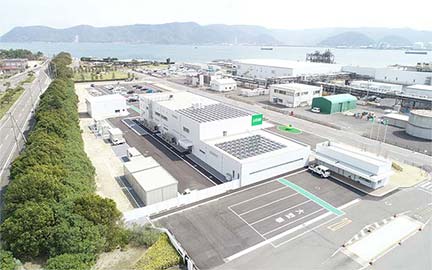
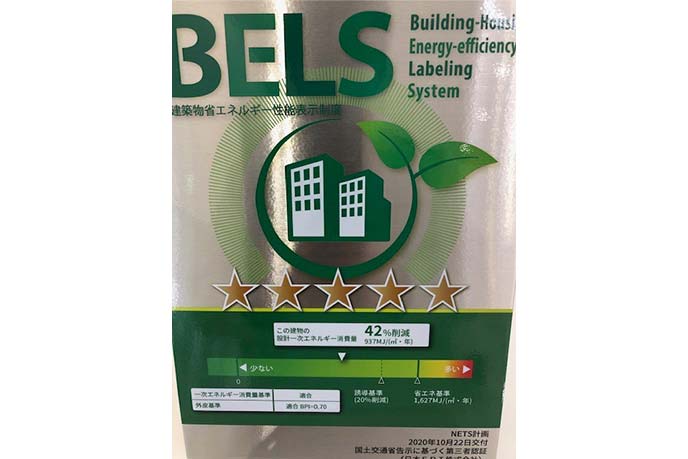
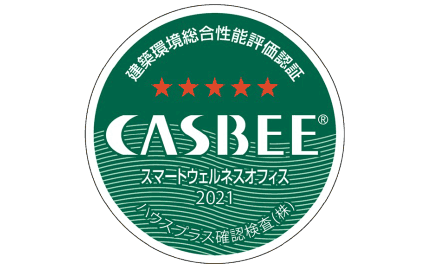
Received a Special Award from the Osaka Climate Change Countermeasures award Special Award
Our Osaka Plant and Osaka Office were commended and awarded the Decarbonization Rank of Gold for achieving a reduction of 50% or more in greenhouse gas emissions compared to the base year. In addition to day-to-day energy-saving activities, we have significantly reduced emissions through the use of renewable energy sources.
In 2022, the Group introduced the ICP system in Japan* to promote the reduction of CO2 emissions. Initially, the carbon price for ICP was set at 6,100 yen/t-CO2, but in May 2025, the price applied to capital investment was raised to 13,300 yen/t-CO2, taking into account the external carbon price. This will accelerate the introduction of equipment that saves energy and emits less CO2.
* Lion News Release [Japanese]
CO2 Emissions in Business Activities (Domestic and Overseas)
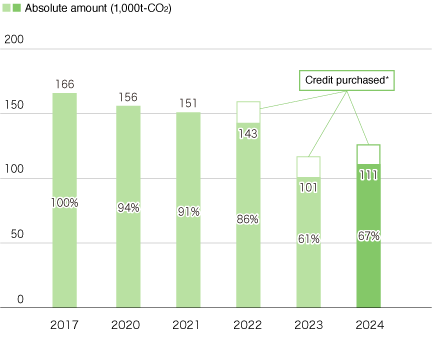
The Lion Group is committed to implementing thorough energy-saving activities but does not expect these to be sufficient to meet its CO2 emission reduction targets. To make up the difference, it will be necessary to utilize renewable energy by such means as installing facilities to generate solar power for in-house use and switching to purchasing electricity from renewable sources.
We have already installed facilities to generate solar power for in-house use at the Hirai Office Site. In 2021, we additionally installed such facilities at Lion Chemical Co., Ltd. Overseas, in the same year, a new solar power generation facility was installed and began operation in the building of the new drying tower added to LCT. In 2024, new solar power generation facilities were installed at LCK and SL. We intend to further increase the amount of solar power generated and increase renewable electricity procurement.
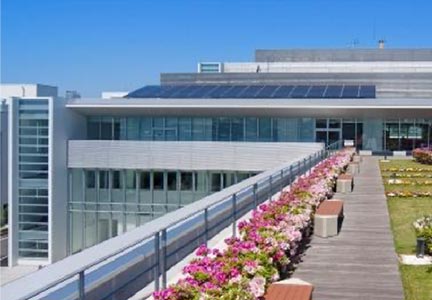
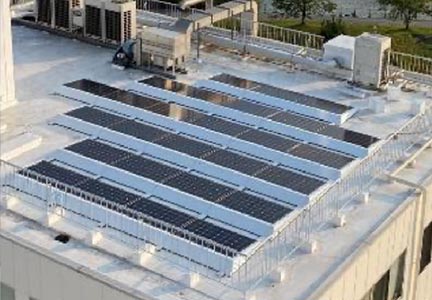
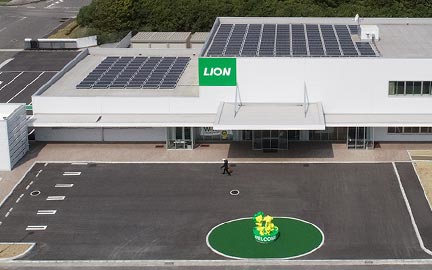
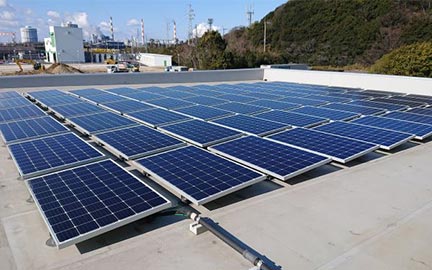
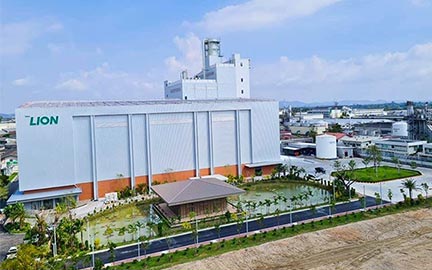
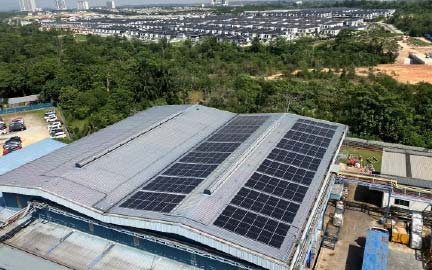
Lion has changed over its power contracts to power companies that supply 100% renewable energy sources. As a result, all domestic plants have been using renewable energy since January 2023 as has the new headquarters since April 2023 (partially using J-Credit).
We began by utilizing renewable energy and green power certificates at our domestic offices, and were able to eventually realize our goal of converting all our offices’ electricity consumption to that from renewable sources in May 2023. In addition, at Lion’s overseas operating sites, we are gradually advancing the switch to renewable energy and aim to purchase 100% renewable energy across all of Lion’s operating sites by 2030.
Lion Corporation (Thailand) Ltd. has purchased T-VER* credits (derived from biomass power generation) to offset the CO2 from its electricity purchases for 2024.
* T-VER is a carbon credit system operated by a Thai public organization.